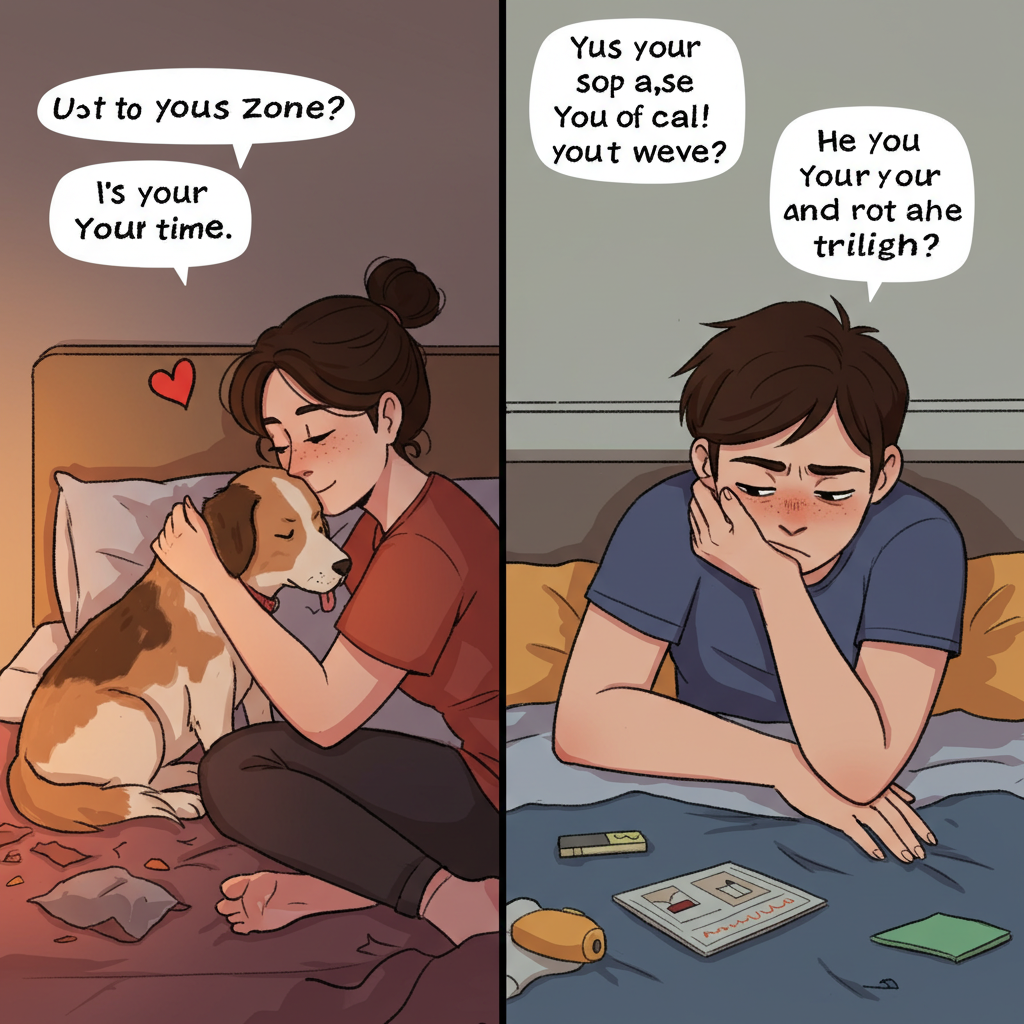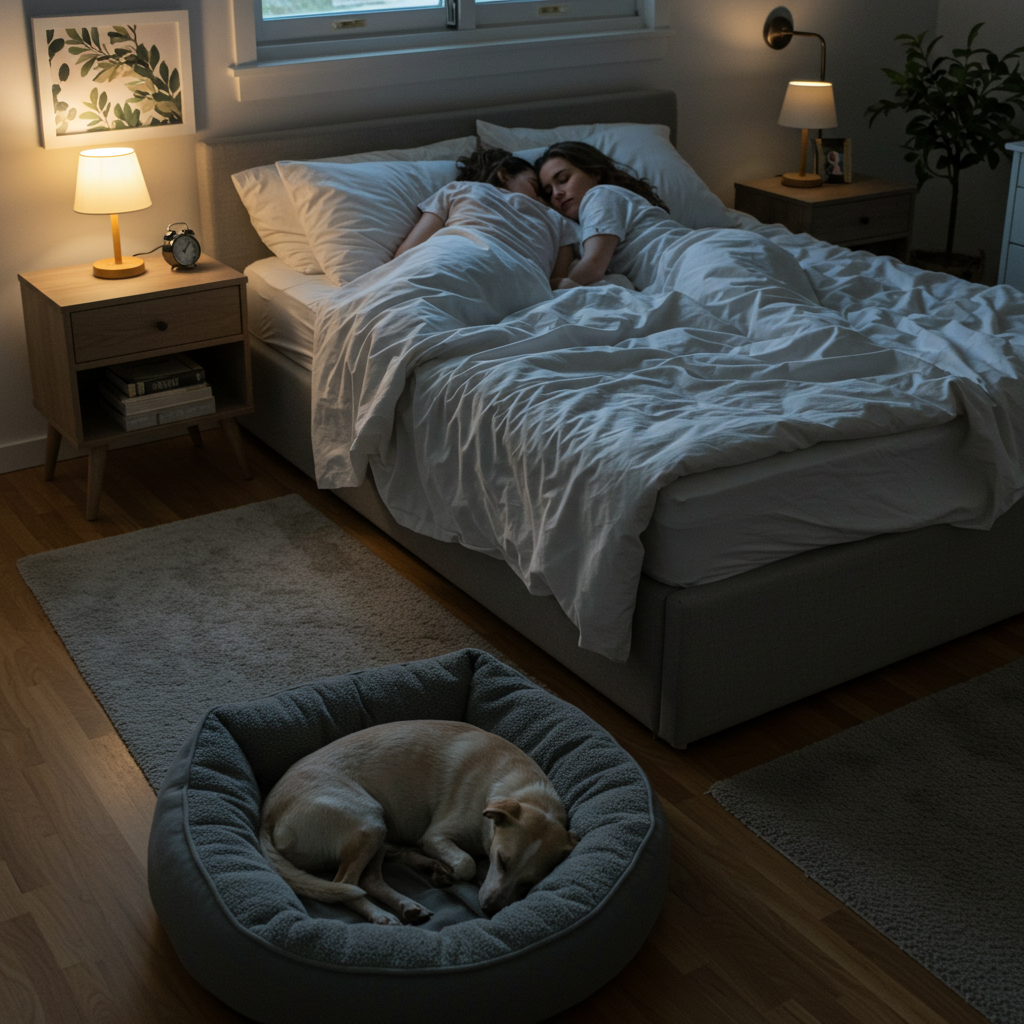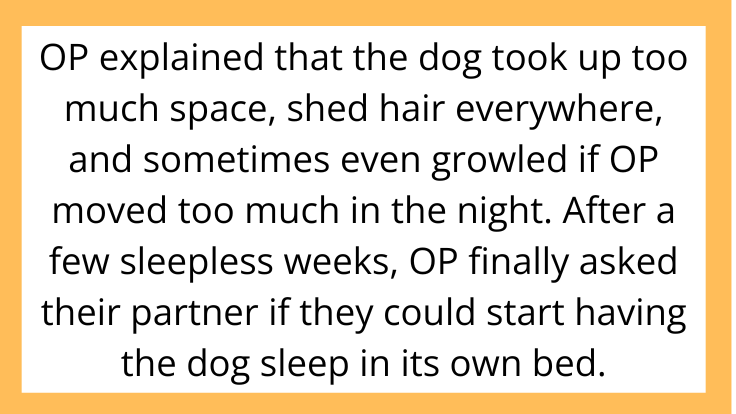AITAH for Not Wanting My Partner’s Dog to Sleep in Our Bed?
Living with a partner often means adjusting to new routines, habits, and even pets. But what happens when those adjustments start to affect your comfort, sleep, and personal boundaries? A recent dilemma posted on r/AITAH explored this exact issue—and it struck a nerve with thousands of readers.
In this blog post, we’ll break down the situation, explore both perspectives, and look at how couples can manage disagreements around pets without damaging the relationship.
The Scenario: Love, Dogs, and a Disrupted Night’s Sleep

The original poster (OP) shared that they recently moved in with their partner, who owns a medium-sized dog. At first, everything was going well—until bedtime. The dog was used to sleeping in bed with the partner, something OP was never comfortable with.
OP explained that the dog took up too much space, shed hair everywhere, and sometimes even growled if OP moved too much in the night. After a few sleepless weeks, OP finally asked their partner if they could start having the dog sleep in its own bed.
The partner was hurt and called OP “cruel” and “controlling.” OP began to question if their request was selfish—or reasonable.
Pets and Partnerships: When Comfort Conflicts

It’s not unusual for people to treat their pets like family, but integrating that bond into a shared living space can cause tension. Here’s what makes this scenario especially tricky:
-
Emotional attachment: For many pet owners, pets are like children. Changing routines feels personal.
-
Sleep and health: Quality sleep is essential, and being disturbed by a pet can affect mood, focus, and even physical well-being.
-
Shared space vs. shared lifestyle: One person’s comfort shouldn’t come at the other’s expense—finding balance is key.
Why OP’s Request Isn’t Inherently Wrong

Wanting uninterrupted sleep isn’t controlling—it’s human. OP didn’t demand that the dog be removed from the home, just from the bed. That’s a boundary, not a rejection of the pet. In fact, many couples successfully compromise by:
-
Having the dog sleep on the floor next to the bed.
-
Buying a pet bed for the bedroom.
-
Creating cuddle time before bed but enforcing boundaries during sleep hours.
A respectful partnership involves listening to each other’s needs—even if it means changing long-standing routines.
What Could Have Been Done Differently?

While OP’s request may have been valid, tone and timing always matter. Here are a few ways this situation could have been better handled:
-
Open dialogue: Framing it as a discussion (“Can we talk about sleep?”) rather than a demand helps avoid defensiveness.
-
Empathy for both sides: Acknowledge the partner’s bond with their pet while still expressing discomfort.
-
Suggest solutions together: Ask, “What’s a compromise we can try that works for both of us?”
Relationships thrive on compromise, but only when both people feel heard and respected.
Reddit’s Verdict: A Mixed Reaction

This AITAH post received thousands of comments—and the responses were split. Some sided firmly with OP, saying that no one should be forced to share a bed with a dog if it causes discomfort. Others defended the partner, arguing that pets are part of the package, and OP should have known what they were signing up for.
In truth, there’s no universal rule—just mutual respect and the ability to compromise.
Final Thoughts: Sleep, Boundaries, and Healthy Coexistence

Asking for a pet-free bed doesn’t make you heartless—it means you value comfort, health, and personal space. The key is how you communicate that need. If both partners are willing to listen and adapt, even the messiest bed-sharing dilemma can have a peaceful resolution.



